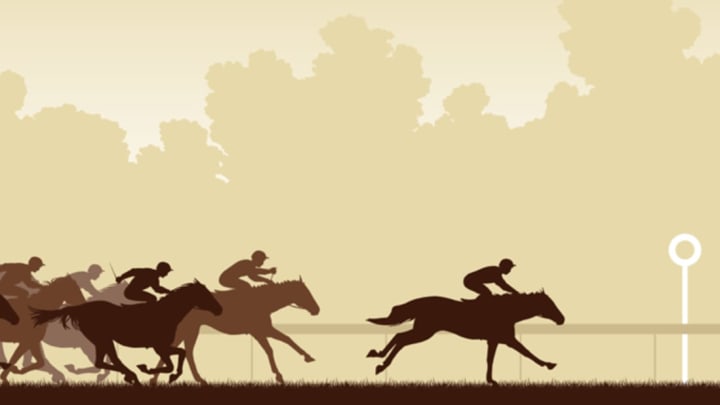You see it with superlatives: the most, the best, the funniest, the worst, the loudest, the weirdest … hands down. Hands down in these cases means “without a doubt, no question.” Where does this expression come from? For me, it always conjured the image of someone slamming their hands down on the table to make a proclamation. It makes others think of laying poker hands down, or a boxer winning without throwing a punch, or voting by hand-raise (as in “put your hands down because there’s no need to vote”).
The true source, according to the Oxford English Dictionary, is horse racing. The earliest examples of the phrase come from 19th century sporting papers where horses win races “hands down,” meaning that victory is so secure that the jockey can relax and drop the reins before crossing the finish line.
In 1832, the expression was literal: “Independence … won with hands down.” By 1853, it was metaphorical (note the scare quotes): “She won with the most perfect ease imaginable, little Sherwood going past the post ‘hands down.’” By then, to win “hands down” was to win easily, without effort. That metaphor of ease extended beyond the domain of horse racing and became what it is today, the all-purpose marker for a no-contest victory.
